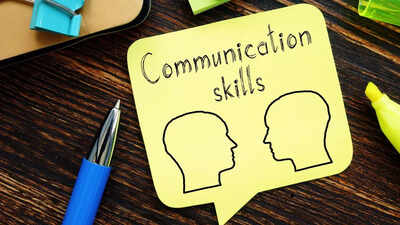
Modern work culture often paints a narrow portrait of success, one where confidence is loud, leadership is charismatic, and communication is king. Job descriptions are peppered with buzzwords like “excellent interpersonal skills” or “strong verbal communication,” giving many the impression that without a commanding voice or polished small talk, they are already a step behind.But that version of success doesn’t tell the full story.There is another kind of professional. Someone who listens more than they speak. Someone who prefers structure over spontaneity. Someone who finds depth in detail and clarity in silence. While traditional roles may favor those comfortable in conversation, there are career paths where quiet thinkers, focused builders, and precise problem-solvers thrive.Here are five meaningful jobs where communication challenges don’t stand in your way, and where your strengths can speak for themselves.
Data Analyst: Let patterns speak louder than people
Numbers reveal what words often miss. Data analysts spend their time mining, sorting, and interpreting information to uncover trends and guide decisions. This role requires critical thinking, curiosity, and comfort with tools like Excel, SQL, or Python, but rarely demands persuasive public speaking or constant collaboration.
Reports, dashboards, and visualizations become the language through which analysts communicate. For those who prefer logic over conversation, it’s a space where clarity is built through numbers, not noise.
Graphic designer: Expressing ideas without saying a word
Every color choice, font style, or layout decision carries meaning. Graphic designers translate messages into visuals, often working solo or in small, creative teams. Clients and audiences see the final product—not the hours of quiet brainstorming, sketching, and editing that went into it.This career values imagination, visual literacy, and attention to aesthetics. For those who struggle to explain their thoughts verbally, design allows ideas to emerge powerfully without needing a microphone.
Software Developer: Writing code instead of speeches
Software development is often collaborative, but the communication involved is focused and functional. Developers spend most of their time coding, debugging, and building digital products. Conversations are typically brief, technical, and task-oriented, with much of the discussion happening through written platforms like GitHub or Slack.If you think best in problem-solving mode and prefer hands-on creation over verbal explanation, the world of development offers a clear path to contribute without relying heavily on spoken communication.
Archivist or Librarian: Calm spaces built for quiet precision
Some professions are designed around focus, structure, and subtlety. Archivists and librarians manage knowledge, whether organizing historical records, curating special collections, or helping researchers navigate databases.
These roles reward order, patience, and intellectual curiosity.Although there is public interaction, it is often one-on-one and information-based, rather than driven by persuasion or performance. For those who thrive in calm, detail-oriented environments, these fields offer a sense of purpose without the pressure to speak often.
Laboratory Technician: Precision over presentation
In laboratories across healthcare, forensics, or environmental science, technicians play a vital role in research and diagnostics.
Whether they are testing samples, analyzing chemical reactions, or maintaining equipment, the work is highly systematic and behind the scenes.Communication is typically direct and procedural. What matters most is accuracy, reliability, and scientific discipline. This job is ideal for individuals who are meticulous, observant, and prefer action over conversation.There’s more than one way to be good at what you doWorkplaces are evolving, and so is the definition of a valuable employee.
Clear communication remains important, but not every role demands charisma or quick thinking on your feet. The professional world needs people who are thoughtful, measured, and quietly effective.If speaking up has always felt like a struggle, that does not mean you are unfit for success. It might just mean your strengths are better suited to careers where thinking clearly is more important than speaking fluently.
Success doesn’t always sound loud. Sometimes, it looks like focus, feels like purpose, and grows in silence.

 12 hours ago
48
12 hours ago
48




























 English (US)
English (US)